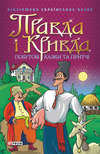Kitabı oku: «The George Sand-Gustave Flaubert Letters», sayfa 10
At Pere-Lachaise I was seized with a profound and sorrowful disgust for humanity. You can not imagine the fetichism of the tombs. The real Parisian is more of an idolater than a negro is! It made me long to lie down in one of the graves.
And the PROGRESSIVES think that there is nothing better than to rehabilitate Robespierre! Note Hamel's book! If the Republic returned they would bless the liberty poles out of policy and believing that measure strong.
When shall I see you? I plan to be in Paris from Easter to the end of May, This spring I shall go to see you at Nohant, I swear it.
CV. TO GUSTAVE FLAUBERT
Nohant, 11 February, 1869
While you are running around to get material for your novel, I am inventing all sorts of pretexts not to write mine. I let myself be distracted by guilty fancies, something I am reading fascinates me and I set myself to scribbling on paper that will be left in my desk and bring me no return. That has amused me, or rather that has compelled me, for it would be in vain for me to struggle against these caprices; they interrupt me and force me…you see that I have not the strength of mind that you think.
As for our masculine friend, he is ungrateful, while our feminine friend is too exacting. You were right; they are both wrong and it is not their fault, it is the social machinery which insists on it. The kind of recognition, that is to say, submission that she exacts, depends on a tradition that the present time still profits by (there lies the evil); but does not accept any longer as a duty. The notions of the obliged are changed, those of the obliger ought to change also. It must be said that one does not buy moral liberty by any kindness, – and as for him, he should have foreseen that he would be considered enchained. The simplest thing would have been not to care about having thirty thousand francs a year. It is so easy to do without it. Let him extricate himself. They won't entangle us in it: we aren't so foolish!
You say very good things about criticism. But in order to do as you say, there must be artists, and the artist is too much occupied with his own work, to forget himself in estimating that of others.
Heavens, what fine weather! Don't you enjoy it, at least from your window? I'll wager that the tulip tree is in bud. Here, the peaches and the apricots are in flower. It is said that they will be ruined; that does not stop them from being pretty and not tormenting themselves about it.
We have had our family carnival: my niece, my grandchildren, etc. We all put on fancy dress; it is not difficult here, one only has to go to the wardrobe and one comes down again as Cassandra, Scapin, Mezzetin, Figaro, Basile, etc., all that is very pretty. The pearl was Lolo as a little Louis XIII in crimson satin, trimmed with white satin fringed and laced with silver. I spent three days in making this costume, which was very chic; it was so pretty and so funny on that little girl of three years, that we were all amazed in looking at her.
Then we played charades, had supper, and frolicked till daylight. You see that banished to a desert, we keep up a good deal of vitality. And that I delay all I can, the trip to Paris and the chapter of business. If you were there, I would not need to be urged. But you are going there the end of March if and I can not afford to wait till then. To conclude, you swear to come this summer and we count on it absolutely. Sooner than not have you come I shall go to drag you here by the hair. I embrace you most warmly on this good hope.
G. Sand
CVI. TO GUSTAVE FLAUBERT, at Croissset
Nohant, 24 February, 1869
I am all alone at Nohant as you are all alone at Croisset. Maurice and Lina have gone to Milan, to see Calamatta who is dangerously ill. Should they have the misfortune to lose him, they will have to go to Rome to settle his estate, an irksome task added to a sorrow, it is always like that. That sudden separation was sad, my poor Lina weeping at leaving her daughters and weeping at not being with her father. They left me the care of the children whom I rarely leave and who only let me work when they sleep; but I am happier at having this care on my shoulders to console me. I have, every day, in two hours news from Milan by telegram. The patient is better; my children are only as far as Turin today and do not know yet what I know. How this telegraph changes one's idea of life, and when the formalities and formulas are still more simplified, how full existence will be of facts and how free from uncertainties.
Aurore, who lives on adorations in the lap of her father and mother and who weeps every day when I am away, has not asked a single time where they are. She plays and laughs, then she stops; her great eyes stare, she says: MY FATHER? another time she says: MAMMA? I distract her, she thinks no more of it, and then she begins again. They are very mysterious, children! They think without understanding. Only one sad word is needed to bring out their sorrow. She carries it unconsciously. She looks in my eyes to see if I am sad or anxious; I laugh and she laughs, I think that we must keep her sensitiveness asleep as long as possible, and that she never would weep for me if they did not speak of me.
What is your advice, you who have brought up an intelligent and charming niece? Is it wise to make them loving and affectionate early? I thought so formerly: I was afraid when I saw Maurice too impressionable and Solange too much the opposite, and resisting affection. I would like little ones to be shown only the sweet and the good of life, until the time when reason can help them to accept or to fight the bad. What do you say?
I embrace you and ask you to tell me when you are going to Paris, my trip is delayed as my children may be absent a month; I shall be able, perhaps, to meet you in Paris.
Your old solitary,
G. Sand
What an admirable definition I rediscover with surprise in the fatalist Pascal!
"Nature acts progressively, itus et reditus. It goes on and returns, then it goes still further, then half as far, then further than ever." [Footnote: George Sand had copied this and fastened it over her work table at Nohant.]
What a way of speaking, eh? How the language turns, is twisted, made supple, is condensed under this grandiose "hand."
CVII. TO GEORGE SAND
Tuesday night
What do I say about it, dear master? Should one excite or repress the sensitiveness of children? It seems to me that one should not have any set rule about it. It is according as they have a tendency to too much or too little. Moreover, the basis isn't changed. There are tender natures and hard natures, irremediably so. And then the same sight, the same lesson can produce opposite effects. Could anything have hardened me more than having been brought up in a hospital and having played, as a child, in a dissecting amphitheatre? But no one is more sensitive than I am to physical suffering. It is true that I am the son of an extremely humane man, sensitive in the true meaning of the word. The sight of a suffering dog made tears come to his eyes. He did his surgical operations none the less well, and he invented some dreadful ones.
"Show little ones only the sweet and the good of life until the time when reason can help them to accept or to fight the bad." Such is not my opinion. For then something terrible, an infinite disenchantment is bound to be produced in their hearts. And then, how could reason form itself, if it does not apply itself (or if one does not apply it daily) to distinguish good from evil? Life ought to be a continual education; one must learn everything – from talking to dying.
You tell me very true things about the unconsciousness of children. He who could read clearly in these little brains would grasp in them the roots of the human race, the origin of the gods, the sap which produces actions later on, etc. A negro who talks to his idol, and a child who talks to her doll seem to me close together.
The child and the savage (the primitive) do not distinguish the real from the fantastic. I remember very clearly that at five or six years of age I wanted to "send my heart" to a little girl with whom I was in love (I mean my material heart). I could see it in the middle of straw, in a basket, an oyster basket.
But no one has been so far as you in these analyses. There are some infinitely profound pages about it in the Histoire de ma vie. What I say is true, since minds quite opposite to yours have been amazed at them. For instance, the Goncourts.
The good Tourgueneff ought to be in Paris at the end of March. What would be fine, would be for us all three to dine together.
I am thinking again of Sainte-Beuve. Without doubt one can get along without thirty thousand francs a year. But there is something easier yet: that is, when one has them, not to launch into abuse, every week, in the papers. Why doesn't he write books, since he is rich and has talent?
I am just now reading Don Quichotte again. What a tremendous old book! Is there any more beautiful?
CVIII. TO GUSTAVE FLAUBERT
Nohant, 7 March, 1869
Still alone with my grandchildren; my nephews and friends come to spend two out of every three days with me, but I miss Maurice and Lina. Poor Calamatta is at the last gasp.
Give me the address of the Goncourts, you have never given it to me.
Shall I never know it? My letter is still waiting there for them.
I love you and embrace you. I love you much, much, and I embrace you very warmly.
G. Sand
CIX. TO GUSTAVE FLAUBERT
Nohant, 12 March, 1869
Poor Calamatta died the 9th, my children are coming back. My Lina must be distressed. I have news from them only by telegraph. From Milan here in an hour and a half. But there are no details, and I am anxious. I embrace you tenderly,
G. Sand
Thank you for the address.
CX. TO GUSTAVE FLAUBERT, at Croissset
Nohant, 2 April, 1869
Dear friend of my heart, here we are once more calm again. My children returned to me very exhausted. Aurore has been a little ill. Lina's mother has come to get into touch with her about their affairs. She is a loyal and excellent woman, very artistic, and very amiable. I too have had a bad cold, but everything is getting better now, and our charming little girls console their little mother. If it were less bad weather, and I had a less bad cold, I would go at once to Paris, for I want to see you there. How long do you stay there? Tell me quickly.
I shall be very glad to renew my acquaintance with Tourgueneff, whom I knew a little without having read him, and whom I have since read with a whole-hearted admiration. You seem to me to love him a great deal; then I love him too, and I wish when your novel is finished, that you would bring him to our house. Maurice also knows him and appreciates him greatly, he who likes whatever does not resemble anything else.
I am working at my novel about TRAVELING ACTORS [Footnote: Pierre qui roule.] like a convict. I am trying to have it amusing and to explain art; it is a new form for me and amuses me. Perhaps it will not have any success. The taste of the day is for marquises and courtesans; but what difference does that make? – You must find me a title, which is a resume of that idea: THE MODERN ROMAN COMIQUE.
My children send you affectionate greetings; your old troubadour embraces his old troubadour.
G. Sand
Answer quickly how long you expect to stay in Paris. You say that you are paying bills and that you are vexed. If you have need of quibus, I have at the moment a few sous I can lend you. You know that you offered once to lend me some. If I had been in a hole I would have accepted. Give all my regards to Maxime Du Camp and thank him for not forgetting me.
CXI. TO GUSTAVE FLAUBERT
Nohant, 17 April, 1869
I am well, I am finishing (today, I hope) my modern Roman comique which will be called I don't know what. I am a little tired, for I have done a lot of other things. But I am going to Paris in eight or ten days to rest, to embrace you, to talk of you, of your work, to forget mine, God be thanked! and to love you as always very much and very tenderly.
G. Sand
Regards from Maurice and his wife.
CXII. TO GUSTAVE FLAUBERT
Monday, 26 April, 1869
I arrived last night, I am running around like a rat, but every day at 6 o'clock one is sure of finding me at Magny's, and the first day that you are free, come to dine with your old troubadour who loves you and embraces you.
Send word ahead to me, however, so that by an exceptional chance, I do not have the ill luck to miss you.
Monday.
CXIII. TO GUSTAVE FLAUBERT
Thursday evening, 29 April, 1869
I am back from Palaiseau and I find your letter. Saturday I am not sure of being free; I have to read my play with Chilly on account of some objections of detail, and I had told you so. But I see him tomorrow evening, and I shall try to get him to give me another day. I shall write you then, tomorrow evening, Friday, and if he frees me, I shall go to your house about three o'clock on Saturday so that we can read before and after dinner; I dine on a little fish, a chicken wing, an ice and a cup of coffee, never anything else, by which means my stomach keeps well. If I am kept by Chilly, we shall postpone till next week after Friday.
I sold Palaiseau today to a master shoemaker who has a LEATHER plaster on his right eye, and who calls the sumachs of the garden, the schumakre.
Then Saturday morning you shall have word from your old comrade.
G. Sand
CXIV. TO GUSTAVE FLAUBERT 30 April, 1869
No way of going out today. This slavery to one's profession is horrid, isn't it? Between now and Friday I shall write to you so that we can again settle on a day. I embrace you, my old beloved troubadour.
G. Sand
CXV. TO GUSTAVE FLAUBERT 3 May, 1869
They are encroaching upon my time more and more. All my days are full until and including next Sunday. – Tell me quickly if you want me Monday, a week from today – or if it is another day. Let us fix it for it is a fact that I don't really know whom to listen to.
Your troubadour who does not want THIS STATE OF AFFAIRS to continue!
G. Sand
Monday.
CXVI. TO GUSTAVE FLAUBERT
Paris, 4 May, 1869
On Monday then, and if I have an hour free I shall try to embrace my troubadour before that. But don't disturb yourself, I know very well that one does nothing here that one would like to do. Anyway, on Monday between three and four, clear out your windpipe so as to read me a part before dinner.
G. Sand
Tues. evening.
CXVII. TO GUSTAVE FLAUBERT
Sunday, 9 May, 1869
Tomorrow, your reverence, I shall go to dine at your house. I shall be at home every day at five o'clock, but you might meet some guys whom you dislike. You would much better come to Magny's where you would find me alone, or with Plauchut, or with friends who are also yours.
I embrace you. I received today the letter which you wrote to me at
Nohant.
G. Sand
CXVIII. TO GUSTAVE FLAUBERT
Paris, 18 May, 1869
I saw Levy today, I tested him at first; I saw that he would not give up his contract at any price. I then said to him many good things about the book and made the remark that he had gotten it very cheap. But he said to me, if the book is in two volumes, it will be 20,000 francs, that is agreed. So I suppose that you will have two volumes, won't you?
However, I persisted and he said to me: If the book is a success, I shall not begrudge two or three thousand francs more. I said that you would not demand anything, that it was not your way of acting, but that for MY PART, I should insist for you without your knowledge, and he left me saying: Be easy, I don't say no. Should the book succeed I will make the author profit by it.
That is all that I have been able to do now, but I will take it up again at the proper time and place. Leave that to me, I will return your contract. What day next week will you dine with me at Magny's? I am a little weary.
You would be very kind to come to read at my house, we should be alone and one evening will be enough for the rest. Set the day, and AT SIX THIRTY if that does not bother you. My stomach is beginning to suffer a little from Paris habits. Your troubadour who loves you,
G. Sand
The rest of the week will finish up Palaiseau, but Sunday if you like, I am free. Answer if you want Sunday at Magny's at half past six.
CXIX. TO GUSTAVE FLAUBERT
Then Monday, I count on you, at half past six; but as I am going to
Palaiseau, I may be a few minutes late or early. The first one at
Magny's must wait for the other. I am looking forward with pleasure to hearing THE REST. Don't forget the manuscript.
Your troubadour Thursday evening, 20 May, 1869.
CXX. TO GUSTAVE FLAUBERT Paris, 29 May, 1869
Yes, Monday, my dear good friend, I count on you and I embrace you.
G. Sand
I am off for Palaiseau AND IT IS TEN O'CLOCK IN THE MORNING!
CXXI. TO GEORGE SAND
My prophecy is fulfilled; My friend X – has gained only ridicule with his candidacy. That serves him right. When a man of style debases himself to practical life, he loses caste and should be punished. And then, is it a question of politics, now! The citizens who are excited for or against the Empire or the Republic seem to me as useful as those who discuss efficacious or efficient grace. Politics are as dead as theology! They have had three hundred years of existence, that is quite enough.
Just now I am lost in the Church Fathers. As for my novel l'Education sentimentale, I am paying no more attention to it, God be thanked! It is recopied. Other hands have gone over it. So, the thing is no longer mine. It does not exist any longer, good night. I have taken up again my old hobby of Saint Antoine. I have reread my notes, I am making another new plan and I am devouring the ecclesiastical memoirs of the Nain de Tillemont. I hope to succeed in finding a logical connection (and therefore a dramatic interest) between the different hallucinations of the Saint. This extravagant setting pleases me and I am absorbed in it, there you are!
My poor Bouilhet bothers me. He is in such a nervous state that they have advised him to take a little trip to the south of France. He is overwhelmed by an unconquerable melancholy. Isn't it queer! He who was so gay, formerly!
My Heavens! What a beautiful and farcical thing is the life of the desert Fathers! But without doubt they were all Buddhists. That is a stylish problem to work at, and its solution would be more important than the election of an academician. Oh! ye men of little faith! Long live Saint Polycarp!
Fangeat, who has reappeared recently, is the citizen who, on the 25th day of February, 1848, demanded the death of Louis-Philippe "without a trial." That is the way one serves the cause of progress.
CXXII. TO GEORGE SAND
What a good and charming letter was yours, adored master! There is no one but you! upon my word of honor! I am ending by believing it. A wind of stupidity and folly is now blowing over the world. Those who stand up firm and straight against it are rare.
This is what I meant when I wrote that the times of politics were over. In the 18th century the chief business was diplomacy. "The secrecy of the cabinets" really existed. The peoples still were sufficiently amenable to be separated and to be combined. That order of things seems to me to have said its last word in 1815. Since then, one has hardly done anything except dispute about the external form that it is fitting to give the fantastic and odious being called the State.
Experience proves (it seems to me) that no form contains the best in itself; orleanism, republic, empire do not mean anything anymore, since the most contradictory ideas can enter into each one of these pigeon holes. All the flags have been so soiled with blood and with filth that it is time not to have any at all. Down with words! No more symbols nor fetiches! The great moral of this reign will be to prove that universal suffrage is as senseless as the divine right although a little less odions!
The question is then out of place. One is concerned no longer with dreaming of the best form of government, since all are equal, but with making science prevail. That is the most important. The rest will follow inevitably. Purely intellectual men have rendered more service to the human race than all the Saint Vincent de Pauls in the world! And politics will be an everlasting folly so long as it is not subordinate to science. The government of a country ought to be a section of the Institute, and the last section of all.
Before concerning yourself with relief funds, and even with agriculture, send to all the villages in France, Robert Houdins to work miracles! The greatest crime of Isidore is the wretched condition in which he leaves our beautiful country. Dixi. I admire Maurice's occupations and his healthy life. But I am not capable of imitating him. Nature, far from fortifying me, drains my strength. When I lie on the grass I feel as if I am already under the earth and that the roots of green things are beginning to grow in my belly. Your troubadour is naturally an unhealthy man. I do not like the country except when travelling, because then the independence of my individuality causes me to rise above the knowledge of my nothingness.
CXXIII. TO GUSTAVE FLAUBERT
Nohant, 6 August, 1869
Well, dear good friend, here it is August, and you have promised to come. We don't forget it, we count on it, we dream of it, and we talk of it every day. You were to take a trip to the seashore first if I am not mistaken. You must need to shake up your gloom. That does not dispel it, but it does force it to live with us and not be too oppressive. I have thought a great deal about you lately, I would have hastened to see you if I had not thought I should find you surrounded by older and better friends than I am. I wrote you at the same time that you wrote me, our letters crossed.
Come to see us, my dear old friend, I shall not go to Paris this month, I do not want to miss you. My children will be happy to spoil you and to try to distract you. We all love you, and I love you PASSIONATELY, as you know.
CXXIV. TO GUSTAVE FLAUBERT
Nohant, 14 August, 1869
Your change of plans distresses us, dear friend, but we do not dare to complain in the face of your anxieties and sorrows. We ought to wish you to do what would distract you the most, and take the least out of you. I am in hopes of finding you in Paris, as you are staying there some time and I always have business there. But it is so hard to see friends in Paris and one is so overwhelmed by so many tedious duties! Well, it is a real sorrow to me not to have to expect you any more at our house, where each one of us would have tried to love you better than the others and where you would have been at home; sad when you wanted to be, busy if you liked. I resign myself on condition that you will be better off somewhere else and that you will make it good to us when you can.
Have you at least arranged your affairs with Levy? Is he paying you for two volumes? I would like you to have something on which to live independently and as master of your time. Here there is repose for the mind in the midst of the exuberant activities of Maurice, and of his brave little wife who sets herself to love all he loves and to help him eagerly in all he undertakes. As for me, I have the appearance of incarnate idleness in the midst of this hard work. I botanize and I bathe in a little icy torrent. I teach my servant to read, I correct proof and I am well. That is my life and nothing bores me in this world where I think that AS FAR AS I AM CONCERNED all is for the best. But I am afraid of becoming more of a bore than I used to be. People don't like such as I am very much. We are too inoffensive. However, love me still a little, for I feel by the disappointment of not seeing you, that it would have gone hard with me if you had meant to break your word.
And I embrace you tenderly, dear old friend.
G. Sand
CXXV. TO GUSTAVE FLAUBERT
Thursday
I know nothing either of Chilly or la petite Fadette. In a few days I am going to make a tour of Normandy. I shall go through Paris. If you want to come around with me, – oh! but no, you don't travel about; well, we shall see each other in passing. I have certainly earned a little holiday. I have worked like a beast of burden. I need too to see some blue, but the blue of the sea will do, and you would like the blue of the artistic and literary firmament over our heads. Bah! that doesn't exist. Everything is prose, flat prose in the environment in which mankind has settled itself. It is only in isolating oneself a little that one can find in oneself the normal being again.
I am resuming my letter interrupted for two days by my wounded hand which inconveniences me a good deal. I am not going to Normandy at all, my Lamberts whom I was going to see in Yport came back to Paris and my business calls me there too. I shall then see you next week probably, and I shall embrace you as if you were my dear big child. Why can't I put the rosy, tanned face of Aurore in the place of mine! She is not what you would call pretty, but she is adorable and so quick in comprehending that we all are astonished. She is as amusing in her chatter as a person, – who might be amusing. So I am going to be forced to start thinking about my business! It is the one thing of which I have a horror and which really troubles my serenity. You must console me by joking with me a little when you have the time.
I shall see you soon, have courage in the sickening work of proof- reading. As for me I hurry over it quickly and badly, but you must not do as I do.
My children send you their love and your troubadour loves you.
G. Sand
Saturday evening
I have just received news from the Odeon. They are at work putting on my play and do not speak of anything else.
CXXVI. TO GUSTAVE FLAUBERT
Paris, 6 September, 1869
They wrote me yesterday to come because they wanted me at the Opera- Comique. Here I am rue Gay-Lussac. When shall we meet? Tell me. All my days, are still free.
I embrace you.
G. Sand
CXXVII. TO GUSTAVE FLAUBERT
Paris, 8 September, 1869
I send you back your handkerchief which you left in the carriage. It is surely tomorrow THURSDAY that we dine together? I have written to the big Marchal to come to Magny's too.
Your troubadour
G. Sand
Wednesday morning.
CXXVIII. TO GUSTAVE FLAUBERT
Paris, Tuesday, 5 October, 1869
Where are you now, my dear troubadour? I am still writing to you at the boulevard du Temple, but perhaps you have taken possession of your delightful lodgings. I don't know the address although I have seen the house, the situation and the view. – I have been twice in the Ardennes and in a week or ten days, if Lina or Maurice does not come to Paris, as they have a slight desire to do, I shall leave again for Nohant.
We must then meet and see each other. Here am I a little sfogata (eased) from my need for travel, and enchanted with what I have seen. Tell me what day except tomorrow, Wednesday, you can give me for dinner at Magny's or elsewhere with or without Plauchut, with whomever you wish provided I see you and embrace you.
Your old comrade who loves you.
G. Sand



















